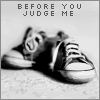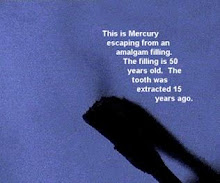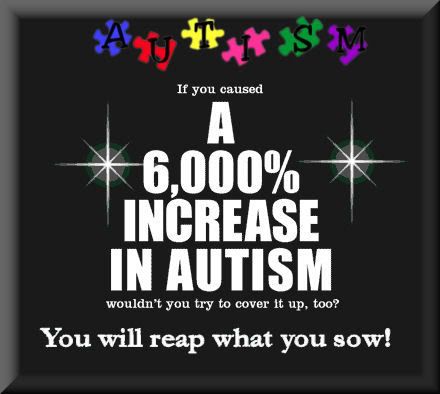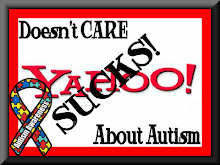AGE OF AUTISM "Q&A" THE SACRED COW (VACCINES) AND AUTISM IN INDIA
 Age of Autism Q&A is a new feature by Dan Olmsted. We hope you enjoy it.
Age of Autism Q&A is a new feature by Dan Olmsted. We hope you enjoy it.
By Dan Olmsted
A recent Senate report that absolved public officials of misconduct in reviewing the safety of the mercury preservative Thimerosal contained an overlooked conclusion: "The contention that Thimerosal is used in vaccines provided to third world and developing countries is accurate."
The document cited the CDC's view that "the vaccination of children in much of the world will continue to require the use of multiple-dose vials for reasons of cost, production, and storage capacity." (A preservative is needed in multi-dose vials because repeated needle sticks to withdraw vaccine expose the vial to microbes.) This fits with the comment at the secretive, CDC-sponsored Simpsonwood conference in 2000 by Dr. John Clements of the World Health Organization: "My mandate as I sit here in this group is to make sure at the end of the day that 100,000,000 are immunized with DTP, Hepatitis B and if possible Hib, this year, next year, and for many years to come, and that will have to be with Thimerosal-containing vaccines, unless a miracle occurs and an alternative is found quickly and is tried and is found to be safe."
This begs the question for those concerned about a link between mercury, and vaccines in general, and autism: What is happening with the autism rate in those countries? There have been reports that rates have soared in the past few years, but public health authorities attribute the increase to better diagnosis and awareness. They say neither Thimerosal nor vaccines themselves cause autism.
 In this first-of-its-kind interview, two veteran health professionals talk about their eyewitness experience in India – and their account differs starkly from the official line. I met husband-and-wife chiropractic doctors Matthew Lewis and Dipti Patel at a Long Island autism conference recently. I was impressed by their candor and compassion and the significance of their first-hand observations.
In this first-of-its-kind interview, two veteran health professionals talk about their eyewitness experience in India – and their account differs starkly from the official line. I met husband-and-wife chiropractic doctors Matthew Lewis and Dipti Patel at a Long Island autism conference recently. I was impressed by their candor and compassion and the significance of their first-hand observations.
AOA: Because of Dipti's heritage, as I understand it, you've gone back to India over a period of years.
Matthew: Ever since we were in school we would do doctors-without-borders-type trips. We'd get a group of maybe 20 or so chiropractors and go out to a village in India and provide chiropractic care. We would literally have thousands of people show up.
 Dipti: They'd carry people in. The kids who had (damage from) the polio vaccine would get dragged in.
Dipti: They'd carry people in. The kids who had (damage from) the polio vaccine would get dragged in.
AOA: What year did you start?
Dipti: 2001.
Matthew: Then we kept going on a yearly basis. We might skip a year and then we'd be back a year later. It was interesting because we got to see some changes.
AOA: And you say from the beginning you did see kids who you felt had vaccine-induced problems?
Matthew: First of all, if you live in the United States you don't see polio. There were schools there that were for children who had polio. They would actually take the whole school and bring the school in (to see us) and we would "adjust" all the kids with polio. And out of those kids, when we were serving the parents, we'd say, "What happened to the child?" and they'd say, "They were fine … (they got an) injection … this is what happened." So we know that when you vaccinate for polio certain kids are going to get polio as a result of the vaccine, but as a whole I would say that (polio vaccine) probably helped. I'm not critical of that. It's what they did, and that's what we saw.
And then what happened was there was a subset of people that we would see who would bring their kids with mostly neurological problems but they didn't necessarily contract polio. But they had other neurological deficits going on and the parents would say the same thing. "We had the injection. Someone came, the doctor came, and he did this to everybody and some kids were left like this."
AOA: And they were only talking about polio shots at that point?
Matthew: No, I can't say that for sure. But it was some kind of injection, vaccine-related. This was in 2001.
AOA: So, then, how did things change?
Matthew: In 2005 when I went the big difference was, we'd still see the kids with the polio and everything like that, we'd still see the parents coming in with the kids who don't have polio who say, "Something happened to my child once they got a vaccine." But then, even more specifically, we had people talking about autism and also explaining characteristics of autism-like behavior.
AOA: Such as?
Matthew: You know, the flapping of the hands, the stimming, just that fogginess – their arms and legs are fine. There are kids who have (side effects of vaccines) who have a cerebral-palsy-like presentation or some kind of muscular dystrophy. That wasn't the case – these kids walked but they would be very loose or have no (muscle) tone. They would just not be thriving, the mother coming and saying "They're not speaking."
What I would suggest to you is the difference was that this was new to them. They had not seen this before. They saw what happened with the polio vaccines, they saw what happened with the shots. This was something unique, different.
AOA: And you think that was because of new shots?
Matthew: I honestly don't know.
Dipti: Yes, I would say so because during that time, 2001 to now, even, more shots from America are going over to those countries.
Matthew: When you ask me was it these shots, when I think about that for a moment … you know, initially when we went we were in a village in the middle of nowhere. But what started happening was we got on national TV for the work that we were doing, so there was a larger scale, there were more people coming from all over. We had people coming from 24 hours away, and so we started having more affluent families that were traveling, and they were bringing these kids. And so these kids, I would say, yes, they were getting more vaccines. They were coming from a different realm outside of this village.
What I would suggest is that in the village, we always saw – every time we went – parents who knew that they got a vaccine and the child was hurt, period. Is it autism? (They) don't know. But they knew there was a connection between a vaccine and a negative consequence, and maybe something good (by preventing disease).
Now we started seeing parents who were coming in saying, we gave vaccines, we'd never seen this before … (Those families) are getting better attention now. They're getting their regular child visits that they were not getting in the villages necessarily, and now they're having problems …
AOA: That they wouldn't have had 10 years ago necessarily?
Matthew: They didn't know what it (autism) was. They never saw this.
AOA: To play devil's advocate, this is something that presumably public health officials would keep surveillance on, because if this is a WHO project and there are changes towards what sounds like autism, it's not something that would be hard to notice. You noticed it. Where is WHO on this? Why aren't we hearing about this?
Matthew: I just don't know if they even track that kind of thing.
AOA: They should track it.
Matthew: Sure. (But) "polio or no polio," that's what they're looking at.
AOA: David Kirby ends his book EVIDENCE OF HARM with rates increasing in China. Robert F. Kennedy Jr. does the same thing in Rolling Stone. But then you get people saying "It's just better diagnosed." But when you folks come at it from an experiential way over time …
Matthew: I've been talking about this since I've gone there. I learned in school the potential dangers of vaccines and I read about it before I went. I read Barbara Loe Fisher's book, A Shot in the Dark, and it's just something that piqued my interest when I was in school.
Dipti: You forgot to mention that before he was even a chiropractor he worked with autistic children. He had a background in autism – behavioral therapy on the floor with the kids.
Matthew: So I had an interest in vaccines and an understanding of what was happening. And then I just went out into the world and I wasn't looking for it, I went to India and all of a sudden (I saw) all the stuff I was reading about, which you can't really see in America.
Because if I was in my private practice in the United States, I don't get kids that come with vaccine damage – well, now I do – but you don't get kids with a parent who comes in and says, "He got a shot and he was sick." That (observation) gets thrown away. But when you go there, it's raw. Parents will just tell you whatever they saw.
Dipti: There's no pediatrician saying "Oh, no, you're crazy." It doesn't work like that. It's a totally different culture. We (in the U.S.) have almost come to an acceptance that our kids are being destroyed.
--
Dan Olmsted is Editor of Age of Autism.










No comments:
Post a Comment